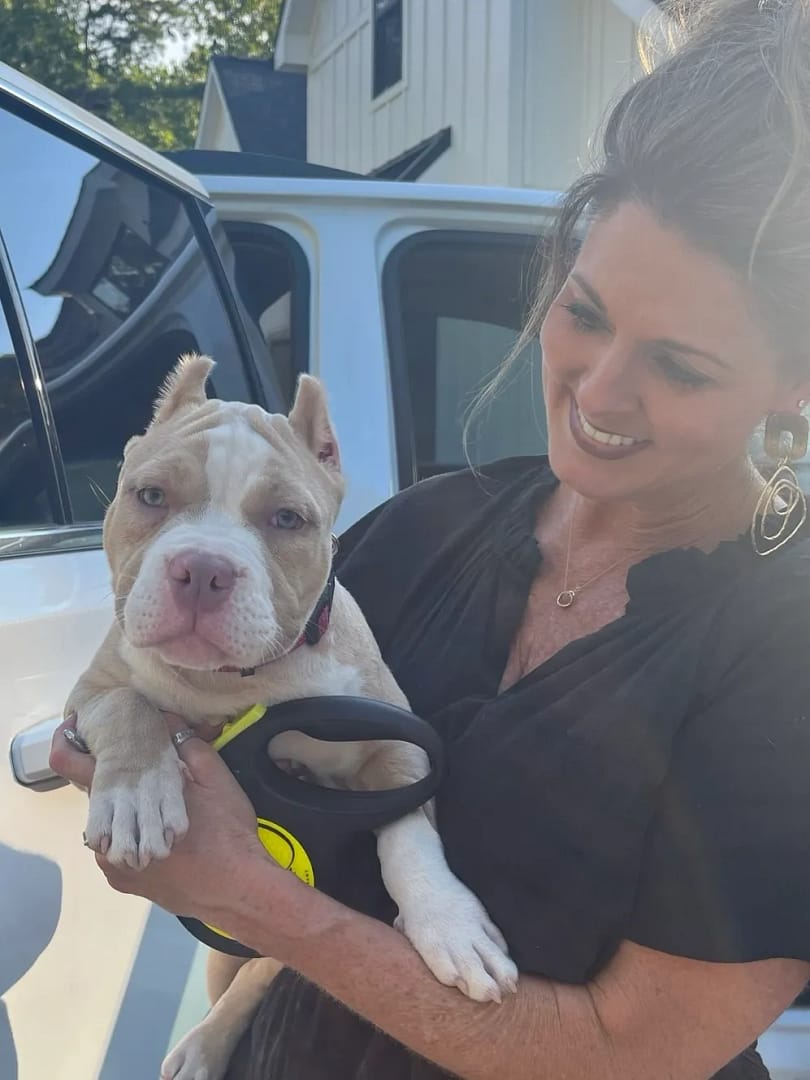
Monitoring Your Puppy and Dog’s Weight and Overall Health
Monitoring and maintaining your dog’s health is essential to ensure they lead a happy, healthy life. Regular check-ups, observation, and preventive care can help you detect and address any health issues early on. Here are some steps to effectively monitor and maintain your dog’s health:
1. Regular Veterinary Check-ups:
Schedule routine veterinary visits, typically once a year for adult dogs and more frequently for puppies, seniors, or dogs with health conditions. These check-ups allow your vet to evaluate your dog’s overall health, administer vaccinations, and recommend any necessary tests or treatments.
2. Preventive Care:
Stay up-to-date on your dog’s vaccinations, heartworm prevention, and flea and tick treatments, as recommended by your veterinarian. This helps protect your dog from potentially serious illnesses and parasites.
3. Weight Management:
Regularly monitor your dog’s weight to prevent obesity, which can lead to various health issues like diabetes, joint problems, and heart disease. Adjust your dog’s diet and exercise routine as needed to maintain a healthy weight.
4. Balanced Diet:
Feed your dog a balanced, age-appropriate diet, as recommended by your veterinarian. A proper diet will provide your dog with the necessary nutrients for optimal health and energy levels.
5. Exercise:
Ensure your dog gets regular physical activity to maintain muscle strength, cardiovascular health, and mental stimulation. The amount and type of exercise will depend on your dog’s age, breed, and fitness level. Daily walks, playtime, and interactive toys can help keep your dog active and engaged.
6. Dental Care:
Maintain your dog’s dental health by brushing their teeth regularly and providing dental chews or toys designed to clean teeth and reduce plaque buildup. Regular dental check-ups at the vet can help detect and address any dental issues early on.
7. Grooming:
Regular grooming is essential for maintaining your dog’s coat, skin, and overall hygiene. Brush your dog’s coat to remove dead hair and prevent matting. Bathe your dog as needed and trim their nails regularly to prevent overgrowth and discomfort.
8. Monitor Behavior and Energy Levels:
Pay close attention to any changes in your dog’s behavior, energy levels, or appetite, as these can be early signs of illness or discomfort. If you notice any sudden or prolonged changes, consult your veterinarian for an evaluation.
9. Mental Stimulation:
Provide mental stimulation for your dog through interactive toys, puzzle feeders, or training exercises. This helps keep their mind sharp, reduces boredom, and can prevent destructive behaviors.
10. Regular Health Checks at Home:
Perform regular health checks on your dog at home to identify any potential issues. Check their ears, eyes, skin, and paws for signs of infection, irritation, or injury. Monitor their stool consistency and urine output to detect any changes that may indicate health problems.
By taking a proactive approach to monitoring and maintaining your dog’s health, you can ensure they live a happy, healthy life. Regular veterinary care, a balanced diet, exercise, and attentive observation are all essential components of maintaining your dog’s overall well-being.
